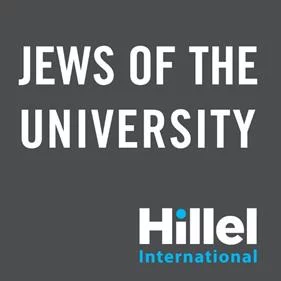Michael Douglas, Genesis Prize Foundation Turn to Hillel to Engage Next Generation of Intermarried Jews

This piece was originally featured in eJewish Philanthropy on Feb. 10, 2016.
Matchmaker, matchmaker has made a match – and the effects could be a more engaged and stronger Jewish community. Recently, the Genesis Prize Foundation announced that last year’s winner, Michael Douglas, had gifted $200,000 of his $1 million award to Hillel International to help further its inclusive programming.
“Hillel was selected due to Michael Douglas’s interest in supporting university students,” explains Maxyne Finkelstein, chief of staff of the Genesis Prize Foundation. “Hillel’s peer engagement model has proven successful in engaging unaffiliated Jewish young adults throughout the world. Michael felt that if this model was expanded to focus on engaging children from intermarried families it could make a real difference.”
The Genesis Prize Foundation was established in 2012 with the goal of recognizing accomplished individuals who could instill a sense of pride and inspire the next generation of Jews. Douglas, the second prize recipient, deferred his reward to help others like himself.
Douglas’ engagement with Judaism began only five years ago at the prompting of his son, Dylan, who was inspired by lighting candles at a couple of his Jewish friends’ houses on Friday nights.
“He would go over to their houses after school on Fridays for the weekend. … And he would light candles and something happened – he felt good inside. He felt something in his heart,” Douglas told a group of Stanford University students earlier this month.
Dylan pushed his Welsh mother, Catherine Zeta-jones, and Douglas for a bar mitzvah, for which Dylan studied aggressively.
“Catherine and I were swept up,” he told the crowd.
Douglas himself is the product of intermarried parents. His father was Jewish and his mother was not, which led Douglas to question whether he could ever really be accepted as part of the tribe.
According to the 2013 Pew Survey of the American Jewish community, intermarriage rates seem to have risen substantially over the last five decades. Among Jewish respondents who had gotten married since 2000, nearly six-in-ten have a non-Jewish spouse. Among those who got married in the 1980s, roughly four-in-ten have a non-Jewish spouse. And among Jews who got married before 1970, just 17% have a non-Jewish spouse. This has led to approximately 70 percent of children with one Jewish parent growing up in interfaith households, according to Douglas.
Douglas “decided to use his prize money to fund programs aimed at making the Jewish community more open to the thousands of families like his,” says Sheila Katz, vice president of social entrepreneurship for Hillel International.
Katz explains that, “Inclusion is part of everything we do at Hillel. Our communities are built on a pluralistic model, bringing students from a variety of backgrounds and ideologies together under one roof. But inclusion is a constant process of review and improvement. The Genesis Prize donation will enable us to train students on the ground in campuses across the country to better engage Jewish students from interfaith marriages and work to ensure that all students can call Hillel their home.”
Katz says that a recent report by the Maurice Marilyn Cohen Center for Modern Jewish Studies found that college is the best time to reach people from interfaith families and that when students from interfaith families have positive experiences with Jewish life in college, they are increasingly more likely to continue engaging with the Jewish community throughout the rest of their lives.
“Part of our work is saying that no matter what those families look like now and whatever their family structure looks like in the future, they can find a home in Jewish communities,” Katz says.
The important work this grant is funding is already well-underway. This past summer, Hillel convened 250 students from the across the country for a training on peer-to-peer engagement, which included a focus on inclusion of Jewish students from interfaith families. These students are now back on their local campuses charged with the task of reaching out to under-engaged students.
Further, Hillel launched the “Jews of the University” project, which includes short, dynamic videos as a way to highlight and share the stories of Jews on campuses across the country.
“Inclusion isn’t only about making a space for all kinds of Jews, it is about celebrating their stories and helping them to be an inspiration for others,” says Katz.
As a next step, the Jewish Funders Network (JFN) is currently running a $1.65MM matching grant initiative for organizations and projects that support and enhance avenues to Jewish engagement for intermarried couples and their families. Donors and organizations that meet JFN’s eligibility requirements to participate in this matching grant initiative can submit applications for funding through March 15.
“My children have further shown me how powerful our heritage and history are, and I want other families to reap the benefits of this connection,” Douglas is quoted as saying on the JFN matching grant website.
Adds Finkelstein, “If we do not use innovative methods for engaging less affiliated Jews in Jewish life, the number of those affiliated with Jewish heritage and culture will continue to decline. … Engagement means that those engaged are having a meaningful Jewish experience.”